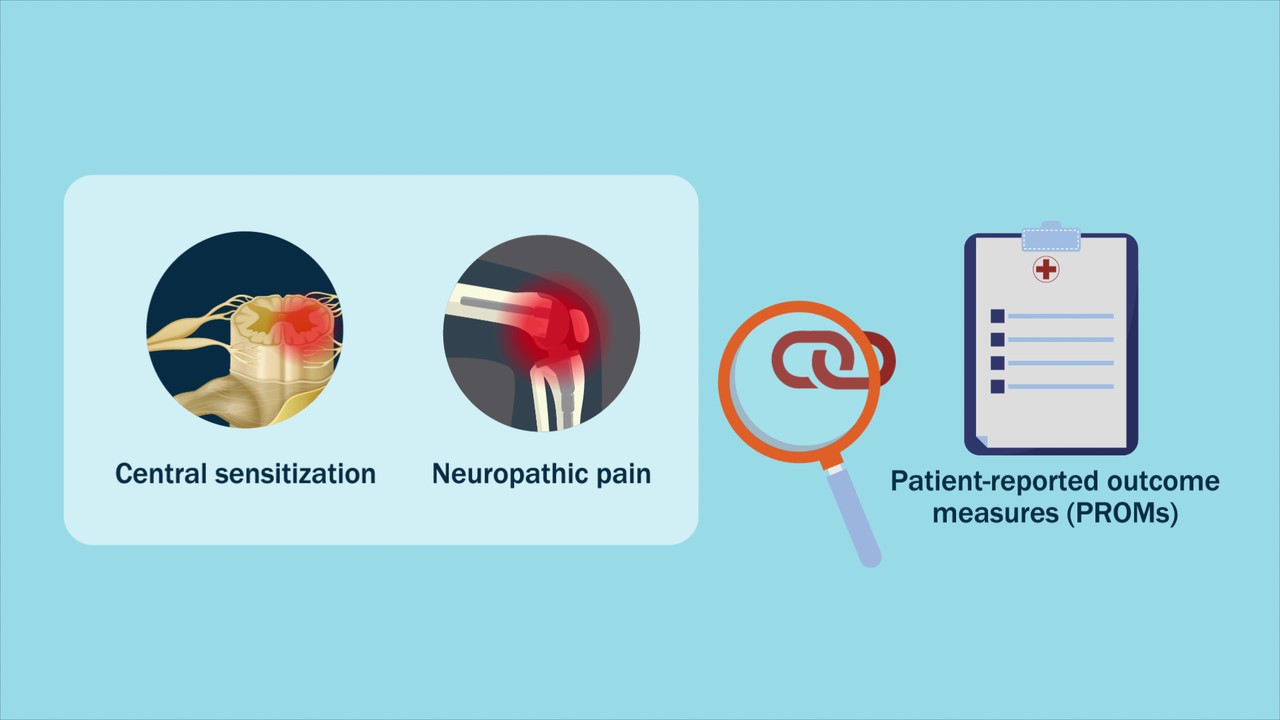A video abstract is available with the new study by Kim et al. in JBJS:
In a study conducted in Seoul, Republic of Korea, researchers investigated central sensitization and neuropathic pain and their association with patient-reported outcome measures (PROMs) in patients undergoing total knee arthroplasty (TKA). Central sensitization, write the authors, can be described as “an amplification of neural signals within the central nervous system resulting in pain hypersensitivity.” Neuropathic pain, they note, is defined as pain caused by nerve damage, but the term has also been used in cases of knee osteoarthritis with no evidence of nerve damage but a pain pattern similar to that of neuropathic pain. Both central sensitization and neuropathic pain are of interest as potential causes of pain after TKA.
A total of 316 patients who underwent primary unilateral TKA for end-stage osteoarthritis were enrolled in this retrospective study. Patients were grouped by the absence or presence of central sensitization (score of ≥40 on the Central Sensitization Inventory) and neuropathic pain (score of ≥19 on the pain DETECT Questionnaire).
The authors concluded, “Each condition, central sensitization and neuropathic pain, was associated with inferior PROMs following TKA. Furthermore, patients with both central sensitization and neuropathic pain showed worse PROMs compared with patients with either condition alone or without either condition.” They suggest that a multidisciplinary approach be considered for these patients.
Read the study by Kim et al. at JBJS.org.
JBJS Video
Interested in other JBJS video content? Explore the JBJS Media section of JBJS.org, featuring easily searchable Orthopaedic Procedures, Video Abstracts, and Author Insights.



